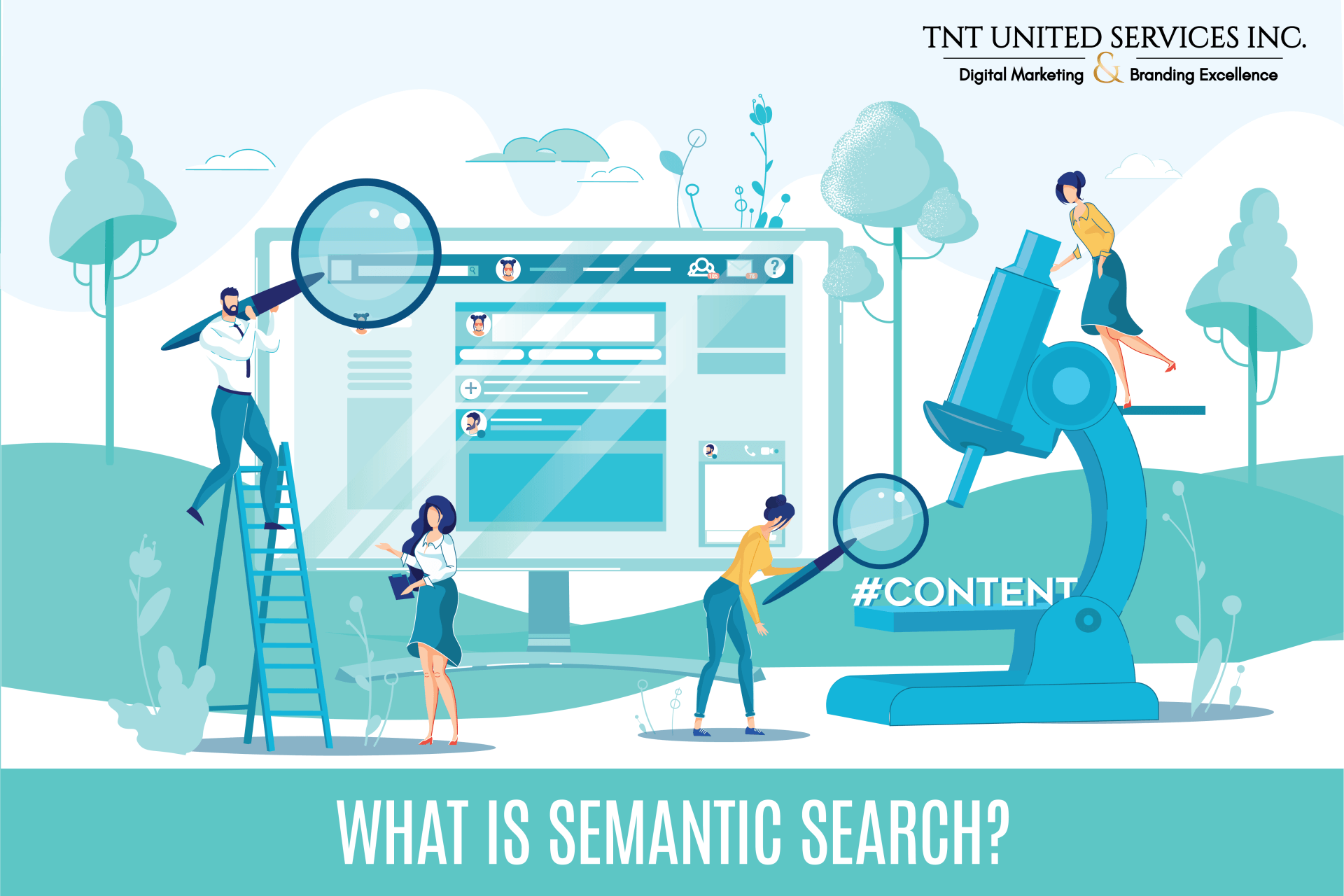What Is Semantic Search?
- And, why should it matter to your business?

What is semantic search - and why should it matter to your business? You see, search engines like Google are trying their best to cut down on spam, deliver the most relevant results, and customize the user experience. And this is done through analyzing semantics: the contextual meaning and logic behind word placement. So, if you’ve just been publishing content that’s stuffed with keywords & lacking relevancy, this is your sign to stop!
What Does Semantic Search Mean?
When delivering material to users on the web, search engines evaluate the purpose and context behind search terms - in other words, they search for semantics. There are two main elements that influence semantic search:
- The user's search intention: Search intent is the purpose that leads to somebody asking a search engine something. In other words, it’s what they want to accomplish. The goal of their search might be to learn something, locate a business, or purchase an item. Search engines can give more relevant results (for instance, an answer to a query, a product page, a brand's website, etc.) by considering users' intent.
- The meaning of search keywords in terms of semantics: The study of meaning and word connections is known as semantics. But when it comes to search engines, semantics connects a search query, the words and phrases associated with it, and the content on web pages. Search engine algorithms determine what words signify rather than their exact dictionary definitions.
Our branding and digital marketing agency has a deep understanding of these principles.
So if you're looking for a Long Island digital marketing agency, contact us today!
888-859-5411
Semantic Search: History
Let’s take a quick look at the history of semantic search! Keywords were the primary ranking element when search engines initially began. On search engine results pages, a website that repeated the target search word the most times would usually be near the top (SERPs).
This method was neither user-friendly nor search engine-friendly. This method was simple to manipulate, resulting in low-quality material generated for search crawlers rather than consumers. A marketer might, for example, develop SEO material that just repeated the word "content marketing,” desperately hoping to achieve a good ranking.
- 2012: Google launched Knowledge Graph to help people find new knowledge fast and easily.
- 2013: Google introduced the Hummingbird algorithm in an attempt to improve search results.
- 2016: Google launched Rankbrain, a machine learning technique to produce search results created to assist the search engine in understanding the meaning of the words supplied by users.
- 2019: BERT was introduced by Google, which stands for Bidirectional Encoder Representations from Transformers. BERT evaluates the entire context of a word by looking at the words that come before and after it, making it especially effective for deciphering the purpose of search queries.
Why Do You Need Semantic SEO?
Semantic SEO refers to a marketing approach that boosts a website's traffic by offering meaningful metadata and semantically relevant content that explicitly answers a given search intent.
In simpler terms, this kind of SEO shows Google the context behind your website, helping the search engine match your content with users. For instance, materials are organized into clusters semantically and categorized into themes rather than keywords.
Semantic SEO is tricky to figure out, but you don’t have to do it alone. Let our SEO agency in Long Island work magic on your semantic SEO requirements and help you achieve your business goals!
Click Here to schedule an appointment today.
The Branding Insider: Digital Marketing Tips and Tricks


















